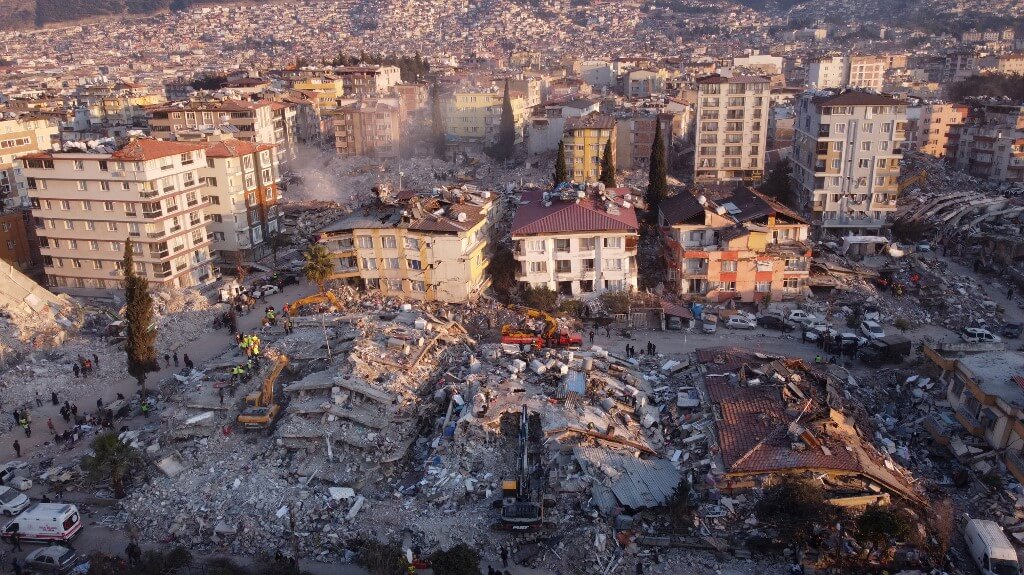Turkey is listed among the high-risk countries due to its vulnerability to natural disasters among 193 countries, with a global ranking of 35, according to the 2024 World Risk Report.
The annual report on global disaster risk was published jointly by the Institute for International Law of Peace and Armed Conflict and an alliance of nine German development organizations, Bündnis Entwicklung Hilft, on Tuesday.
The report reveals which countries are most at risk from natural disasters, and what can be done to prevent catastrophes and mitigate their effects.
The report covers 193 United Nations member states based on 100 primary indicators and new methodology procedures that link to a country’s exposure to natural disasters and societal capacity to respond. On a scale of 0 (very low risk) to 100 (very high risk), Turkey’s score of exposure was 8.90, its vulnerability score was 23.55, lack of coping capacities 50.01 and lack of adaptive capacities 16.32.
Turkey is frequently hit by natural disasters that lead to many deaths, raising questions about the efficiency of the government’s post-disaster response and its ability to mitigate the consequences of such incidents.
The latest major earthquakes hit 11 provinces in the country’s south and southeast in February 2023, causing massive damage and claiming the lives of more than 53,000 people.
At the time, the Justice and Development Party (AKP) government faced an angry backlash from people due to what many said was its slow and inefficient response the earthquakes. It was mainly accused of failing to mobilize enough people for the effort and a lack of coordination among the teams, which resulted in civilians in some regions trying to pull their loved ones from under the rubble themselves and finding them frozen to death although they sustained no critical injuries when their buildings collapsed.
People also criticized the government for failing to take the necessary measures over the past two decades it has been in power to ensure that buildings are constructed resistant to earthquakes, given the fact that the country is located on major fault lines.
Flash floods and wildfires
Turkey is also frequently struck by wildfires and flash floods that lead to the death of dozens of people every year in addition to causing massive devastation to forests and cities.
According to the European Forest Fire Information System (EFFIS), Turkey has experienced at least 74 wildfires so far this year, which have ravaged 12,910 hectares (31,900 acres) of land.
In the summer of 2021, Turkey suffered its worst-ever wildfires. They claimed nine lives and destroyed huge swaths of forested land across its Mediterranean and Aegean coasts.
The disaster sparked a political crisis after it emerged that Turkey had no functioning firefighting planes.
President Recep Tayyip Erdoğan was pressured to accept international help.
It also prompted Ankara to push through Turkey’s delayed ratification of the Paris Climate Accord, becoming the last of the Group of 20 major economies to do so.
Experts say climate change will cause more frequent and more intense wildfires and other natural disasters in Turkey unless measures are taken to tackle the problem.
Meanwhile, the report showed Philippines as the most at-risk country globally against natural disasters, a spot held by the country since 2019.



